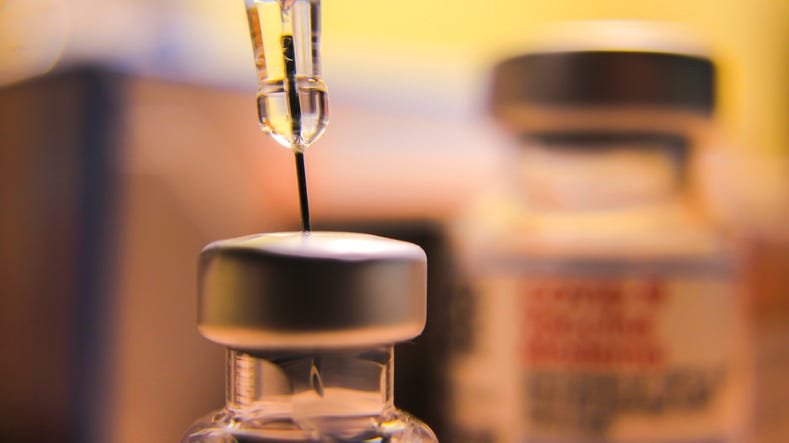
Belief in misinformation about key health issues still lingers in a good chunk of adults.
A new survey from KFF shows that false claims about COVID-19 vaccines and treatments, including myths about the vaccines’ effects on pregnancy and fertility, are garnering a substantial amount of support.
Listen and subscribe to The L.A. Local podcast: your TL;DR for what's happening in Southern California
The polling data found that a third of adults believed the COVID-19 vaccines "caused thousands of sudden deaths in otherwise healthy people," with 10% believing that claim to be "definitely true" and 23% saying it was "probably true."
Another 34% said it was "probably false" and 31% said that claim was "definitely false."
"While health misinformation and disinformation long preceded the pandemic, the pervasiveness of false and inaccurate information about COVID-19 and vaccines brought into further focus the extent to which misinformation can distort public health policy debates and impact the health choices individuals make," the poll noted.
Nearly a third of people also said they believed the parasitic deworming medication ivermectin was an "effective treatment for COVID-19." Another third believe COVID-19 vaccines have been proven to cause infertility. One in five also believe more people have died from the COVID-19 vaccine than from the virus.
"Most people aren't true believers in the lies or the facts about health issues; they are in a muddled middle," KFF President and CEO Drew Altman said in a statement. "The public's uncertainty leaves them vulnerable to misinformation but is also the opportunity to combat it."
Some groups seem to be more susceptible to misinformation than others, according to the research. For example, black adults are at least ten percentage points more likely than White adults to believe that COVID-19 vaccines have caused thousands of sudden deaths in otherwise healthy people. Black (29%) and Hispanic (24%) adults are also both more likely than White adults (17%) to say that the false claim that "more people have died from the COVID-19 vaccine than have died from the COVID-19 virus" is definitely or probably true.
Politics also plays a role. Republicans and pure independents stand out as being more likely than Democratic leaning adults to say COVID-19 misinformation is probably or definitely true.
Among community types, rural residents are also more likely than their urban and suburban counterparts to say that some false claims related to COVID vaccines are probably or definitely true.
The survey points out that educational attainment appears to play a particularly important role when it comes to susceptibility to COVID-19 and vaccine misinformation. Six in 10 adults with college degrees say none of the five false COVID-19 and vaccine claims are probably or definitely true, compared to less than four in 10 adults without a degree.
"Concerningly, about one in five rural residents (19%), adults with a high school education or less (18%), Black adults (18%), Republicans (20%), and independents (18%) say four or five of the false COVID-19 and vaccine misinformation items included in the survey are probably or definitely true," the poll noted.
News sources also matter as those who say they regularly consume news from One America News Network (OANN), Newsmax, and to a smaller extent Fox News, are consistently more likely to believe most of the misinformation items asked about in the survey.
The poll noted that exposure to misinformation may not necessarily convert an individual into believing false health claims, but it adds to confusion and uncertainty about already complicated public health topics.
"While many Americans struggle to separate health information fact from fiction, our survey shows that credible sources of information, and messengers, represent an opportunity to break through and help increase trust," Irving Washington, senior fellow for misinformation and trust at KFF, said in a statement. "We'll continue to focus on this opportunity and what type of efforts can make a difference."
Follow KNX News 97.1 FM
Twitter | Facebook | Instagram | TikTok


